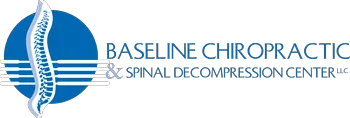
About 36 million Americans suffer from the debilitating headaches known as migraines, according to the Migraine Research Foundation. Women between the ages of 25 and 55 are the likeliest victims. Migraine headaches can last anywhere from a few hours to three days, drastically compromising individuals’ work, social and family lives and often landing them in emergency rooms. Other issues may accompany the migraine, such as nausea, visual disturbances, dizziness, tingling and sensitivity to light, sound, smell and touch.
Symptoms
Migraines often start on one side of the head, but may spread to both sides. Typically, the worst pain is around the sides of the forehead. Many sufferers experience what’s called an aura. This visual disturbance may manifest itself as a temporary blind spot, blurred vision, zigzag lines or flashing lights. When a migraine occurs, sufferers likely feel irritable, depressed and simply want to lie down in a dark and quiet room.
Causes
Why do some people get migraines and others don’t? Researchers aren't sure. Genetics seem to play a part. When the migraine starts, blood vessels constrict, which can cause the changes in vision. Then the vessels dilate, flooding the brain with blood and ramping up the headache.
Triggers vary between individuals. Alcohol and certain foods, such as chocolate, aged cheeses or meals containing nitrates or MSG, launch many a headache. For other people, crying, stress, odors, hormonal fluctuation or loud noises can trigger migraines.
Treatment
Unfortunately, researchers haven’t yet figured out how to cure migraines. Treatment focuses on two fronts: preventing migraines and decreasing pain once a headache is underway.
If you suffer from migraines, keep a headache journal. Recording the events in the 24 hours preceding your migraine can help you identify triggers. If your headaches coincide with eating certain foods, prevention may require a change in diet. If stress triggers migraines, learning relaxation techniques could be helpful.
Many doctors prescribe medications for preventing migraines, including beta blockers, calcium channel blockers, antidepressants, anticonvulsants and even Botox. Sufferers can also take drugs that constrict blood vessels in the brain as soon as they feel a headache coming on. These approaches work for some people, but most medications have side effects.
Alternative therapies for preventing migraine headaches include massage, herbs, nutritional supplements and acupuncture. Sufferers and researchers have experimented with many vitamins, herbs and minerals. According to the Mayo Clinic, some evidence suggests that the herbs butterbur and feverfew may prevent migraine headaches, or at least decrease their severity. Coenzyme Q10 and high doses of vitamin B2 might also help prevent or reduce the frequency of migraines. Don’t experiment with these supplements if you’re pregnant.
Chiropractic Care and Migraines
Some migraine sufferers turn to chiropractors for relief from their headaches. Spinal manipulations lessened the severity and frequency of attacks in some clinical trial participants, according to the University of Maryland Medical Center.
If you suffer from migraines, call our clinic. A spinal adjustment could help your condition without the side effects of medications.
